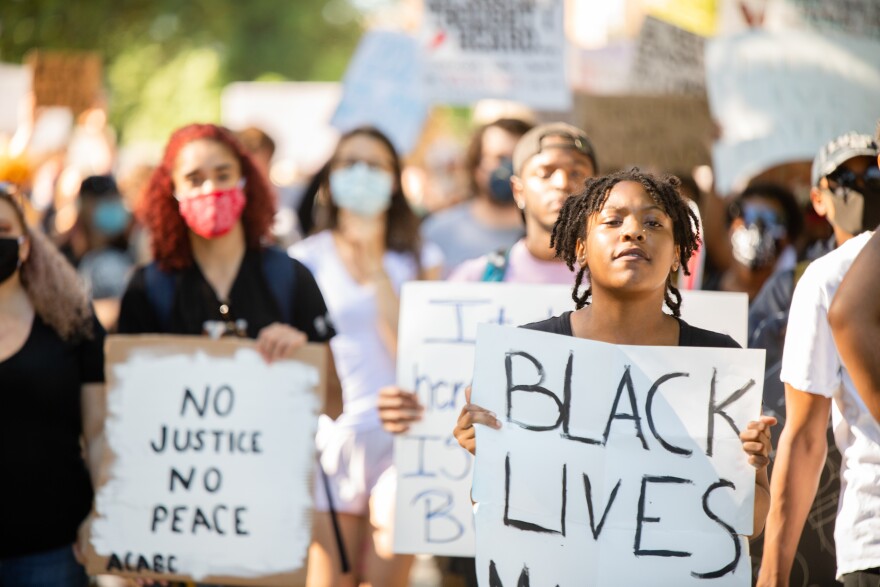Lawmakers in Virginia will consider dozens of proposals this week to reform criminal justice and policing. The legislature is back in the capital Tuesday for a special legislative session that could last weeks. They'll try to ban chokeholds, like the one police used in Minneapolis on George Floyd and no-knock warrants, like the one used in Louisville, Ky., when police killed Breonna Taylor.
Democrats, who have the majority in both the state's House and Senate, have laid out a comprehensive list of bills that include many of the changes Black Lives Matter activists have long-demanded.
Lawmakers are introducing legislation to require officers to intervene when they witness misconduct by another officer. And they're proposing a state-wide alert system that would require mental health professionals to respond to calls of a mental health crisis, with police serving as backup. Community organizers in Richmond, Va., have pushed for a system like this since a 24-year-old Black man named Marcus-David Peters was shot by police in Richmond in 2018, during what a family member described as a mental health episode.
House Majority Leader Charniele Herring said she's focused on legislation that would allow more people to be released from jail on good behavior — also, to overhaul the process to have criminal records erased.
"Virginia has an opportunity now to have an automatic or automated expungement system for certain crimes," Herring said during a recent interview with NPR member station VPM. "And I think it would bring more equity to our criminal justice system."
The House also wants to end a Virginia law called qualified immunity, which shields police officers from being sued for civil rights violations.
"I think about all the families who have suffered injury, and in the worst-case scenario, death, because of what amounts to excessive force," said Del. Jeff Bourne, the bill's sponsor. "This is one of those things that has to be changed if we're really talking about reform and we're really talking about fairness."
The Virginia State Police Association opposes the bill because they say eliminating the protection would open the door to frivolous lawsuits and make hiring officers more difficult.
Republicans responded Monday to Democrats' plans for the session, which was initially called to address budget shortfalls due to the coronavirus pandemic. House Minority Leader Todd Gilbert accused his colleagues across the aisle of steering too far to the left on criminal justice. He said Democrats are making it harder for law enforcement to do their job and undermining public safety.
"[They are] taking individual instances of wrongdoing across the country and applying them out to police and policing generally and making them very much feel like they are the bad guys," Gilbert said. "While at the same time, diminishing punishments for actual bad guys."
And the Democrats in the House and Senate differ somewhat in their priorities for the session. Senate Democrats don't plan to take up the issue of qualified immunity, for instance.
"That's a pretty complicated issue and that's not in our proposal and we're not going to be making one," said State Sen. Scott Surovell.
The Senate is working on a bill to reduce the charge for assaulting a law enforcement officer from a felony to a misdemeanor. State police data show nearly 2000 assaults on police officers last year in which the vast majority did not result in a significant injury to the officer.
Earlier this year, Virginia's newly elected Democratic majority largely deferred sweeping criminal justice reforms until 2021, until nationwide protests condemning the killing of George Floyd rocked the nation.
Copyright 2020 VPM




